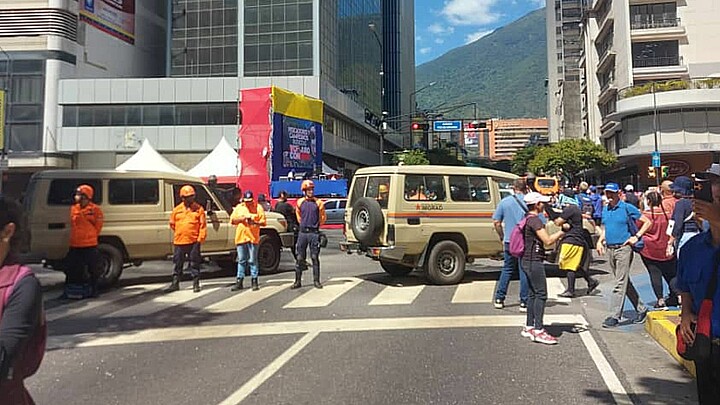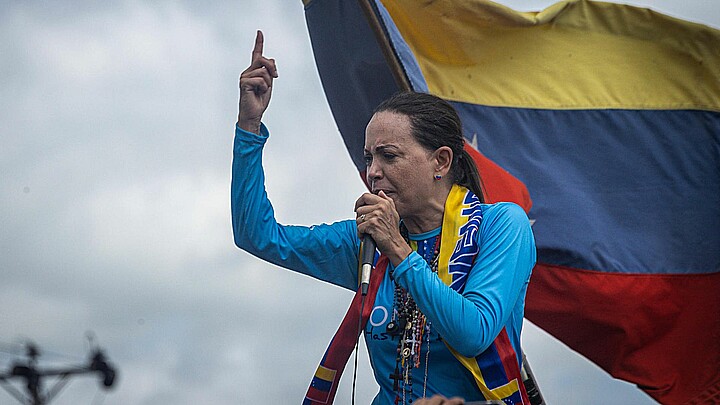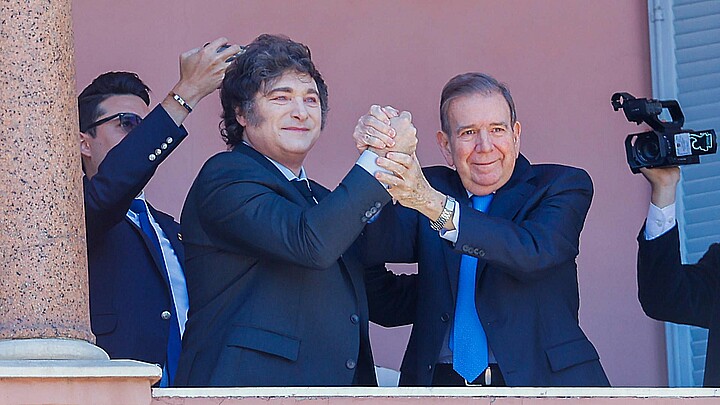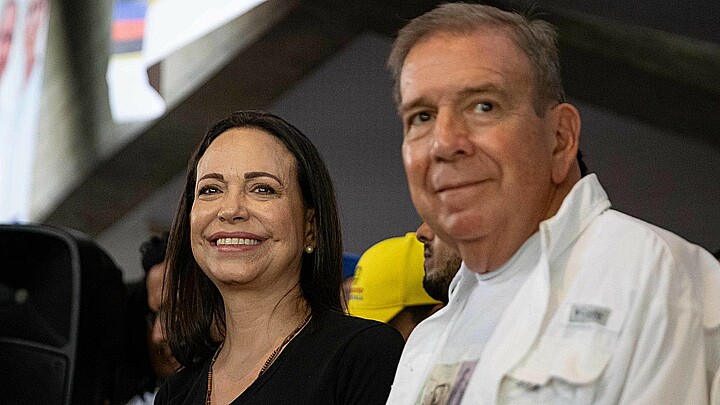Politics
Venezuelan presidential elections begin as Maduro struggles to halt opposition coalition victory
Pollsters predict that up to 13-17 million people will cast ballots on Sunday in Venezuela’s presidential election, a much anticipated event also being monitored by the entire Latin American region, U.S. and European officials

July 28, 2024 12:18pm
Updated: July 28, 2024 12:18pm
Pollsters predict that up to 13-17 million people will cast ballots on Sunday in Venezuela’s presidential election, a much anticipated event also being monitored by the entire Latin American region, U.S. and European officials.
The Maduro regime is currently facing the prospect of being unseated as numerous polls have shown the communist dictator falling way behind the opposition coalition that has rallied around María Corina Machado, a former lawmaker who Maduro banned from being the election process.
During a June rally in Puerto Píritu, she boldly declared that, “Socialism will never rule return again,” to her South American homeland, adding that, “on July 28, everyone will vote for Edmundo, the next president of Venezuela.”
As a stand in for her outlawed candidacy, Corina Machado selected Edmundo González Urrutia, a former ambassador who’s never held public office, but was quick to rise to the occasion to campaigning with the opposition. Together, the coalition has vowed democratize the failing communist state, rebuild the economy and entice millions of Venezuelan exiles who have left the country to return.
Sunday’s election is high stakes for the entire nation since it will give the victor six years in power. Maduro’s socialist policies have widely been recognized as being responsible for having pushed the country into a tragic economic downturn that left it struggling amid an economic crisis and massive hyperinflation.
Maduro timed Sunday’s election to be held on what would have been the 70th birthday of former President Hugo Chavez, the Chavista leader who led Venezuela’s United Socialist Party to victory in 1998. Chavez died in 2013 from cancer and passed the torch to Maduro who has ruled the country since.
On July 21, ADN America reported that Maduro was becoming so concerned with low Chavista turnout he began warning that there would be a “bloodbath” or a “civil war” if he lost the election. ADN has also reported that since the election process began, the regime has engaged in massive intimidation against the opposition, even kidnapping several of Machado’s campaign aides and workers.
In some instances, ADN has reported, that the regime has tried to chill free speech and opposition support by retaliating against businesses such as hotel and restaurant owners who use their venues to host campaign events.
From the opposition’s perspective, they have made repeated claims the election is expected to be fixed for Maduro, but the coalition’s popularity has made it increasingly difficult for the regime to falsify results since their popularity is currently much higher than Maduro.
The coalition, known as the Unitary Platform (Unitaria), hopes that their collective fortitude and the presence of international observers from both Europe and Latin America will obstruct some of the regime’s ground tactics to steal votes or hamper opposition voters.
For years, opposition politicians boycotted elections they saw as rigged, but as the government’s popularity has ebbed former rivals have banded together in an attempt to change the government at the ballot box.
Some of those tactics, according to a July 22 press published by The Associated Press, include closing gas stations in pro-opposition areas, effectuating power outages, using police and Maduro loyalists to block roads, and even commissioning local gangs to engage in voter intimidation and block voting centers.
“All have been instructed by the coalition to remain outside polling centers after voting to fight fear among voters and their voting center representatives, whose duties include securing a copy of tally certificates printed by electronic voting machines after polls close,” the AP report reads. Ruling party loyalists, including armed gangs, are known to have intimidated voting center representatives, known as witnesses, into staying home or abandoning their duties halfway through an election day.
Maduro has also reportedly proliferated military checkpoints across the country.
To combat those tactics, the opposition has created its own network of activists nicknamed “comanditos” (tiny commandos) who are dedicated to help voters get to the ballot box by storing gasoline and offering their own vehicles to help transport people determine to exercise rights to participate in the election. They have also held raffles and sold tamale-like hallacas to raise money for opposition campaign materials.
Comanditos who fled Venezuela have also helped organize support for the opposition’s efforts inside their homeland.
“Aside from sending information and money into Venezuela to help the vote, the other key resource expats are offering is organization,” write a WRLN report, which is part of a joint effort between PBS and NPR.
“Venezuelans abroad have helped form voter activism cells here and throughout Venezuela called comanditos, or “little command centers.” One of their main roles is to stock the more than 30,000 voting stations in Venezuela with opposition poll workers and observers.”
More than 21 million Venezuelans are registered to vote, but the number of expected voters has decreased due to the departure of more than 7.7 million people who have fled the South American country to somewhere between 13-17 million.











